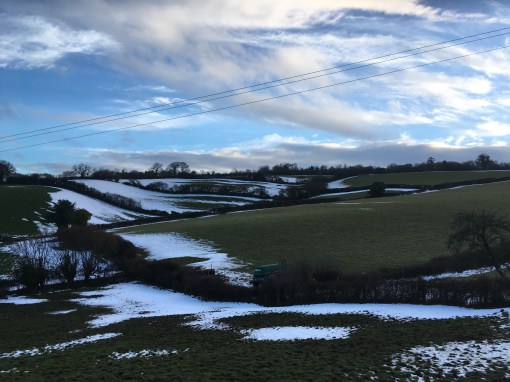 If we are human, we have suffered depression. We’ve been disappointed, discouraged and disillusioned. In the darkest, most painful times, we’ve touched despair. Depression visits us in many shades: some days we might be feeling a little off-colour, other days it’s the full spectrum. Each one of us has the ability to paint depression in hues of our own making. Everyone who has suffered through depression longs for relief.
If we are human, we have suffered depression. We’ve been disappointed, discouraged and disillusioned. In the darkest, most painful times, we’ve touched despair. Depression visits us in many shades: some days we might be feeling a little off-colour, other days it’s the full spectrum. Each one of us has the ability to paint depression in hues of our own making. Everyone who has suffered through depression longs for relief.
Animals, too, suffer alongside us. Dogs who are treated without compassion grow listless or angry and afraid and sometimes need years of patient handling to gain trust in humans who have no interest in prolonging their suffering. Monkeys who have been used in laboratory testing are forever twitchy. One of the saddest things I have seen is a rescue laboratory monkey neurotically pacing the exact dimensions of his lab cage in his new open enclosure.
A few years ago Dragonfly, our super sensitive Arabian horse, went through a prolonged period of depression. He lost his vitality and became deeply introverted. Walks out did not interest him. He picked at his food and hay. The vet could find nothing wrong. The farrier checked his feet and found them sound. We spent time with him and tried to work out what was causing him to be so subdued, but nothing was obvious.
One afternoon I arrived and saw the horse in the stable opposite had not been turned out. His head was hanging low almost between his knees and looking at him I felt close to tears. I learned that his owner often left him in all day and all night and rarely spent much time with him. Dragonfly was effectively sharing a home with another being who was profoundly depressed. I wondered then whether Dragonfly was mirroring the mood in that sad stable block. His vitality returned when I moved him to a new place where he could bicker with his neighbours.
Few of us would choose to be depressed, but depression is inescapable if we are to live as feeling creatures. What if we could learn to view depression differently, as something that protects us from greater harm? The view of depression as a defensive protective strategy in Paul Gilbert’s work The Compassionate Mind is intriguing and perhaps ultimately consoling. Professor Gilbert, a clinical psychologist, reminds us that our brains are still not really that mentally advanced to keep up with the pressures and stresses of contemporary life, and so when we reach the point of overwhelm, we shut down. We retreat into ‘the back of the cave.’ We ruminate on our feelings of despair and weave a negative, blaming, shameful circle around our state of mind. The rumination can keep us depressed for years.
Professor Gilbert explores with great luminosity the idea that depression is a normal, natural response to trauma of any kind, to being bullied, rejected, threatened or abused. Depression steps in to keep us safe. It protects our minds from further harm and allows us time out of life to heal. With this understanding of depression, it makes no sense to blame ourselves for being depressed or try to fight it. It makes little sense to medicate against it either because medication dulls the very system that is doing its best to keep us well. This is a beautiful example of the mind being designed through evolution to heal itself.
Nevertheless, the healing process, as we know so well, is horribly painful. And just as you wouldn’t expect to go through life-saving surgery without medication to support you through the physical pain, medication will often support you through the pain of a mind that needs to mend. It’s blaming ourselves for needing the medication that causes more suffering. And to blame a mind already in agony is to compound real suffering.
As Professor Gilbert argues so eloquently, we need a more compassionate approach to healing the mind. We need to understand the mind as a system that serves us so well and most of time acts in our best interests, when we remember to step out of the way. Here is an idea that might be too difficult to accept: if instead of blaming our tendency to go down when we are threatened, we could reach out to depression and see that it is trying to be our friend, our wise companion through the darkness, maybe that would change our experience?
I was going to finish with another shade of blue photograph, but have included this one instead because today in this hemisphere, we mark the Spring Equinox.




